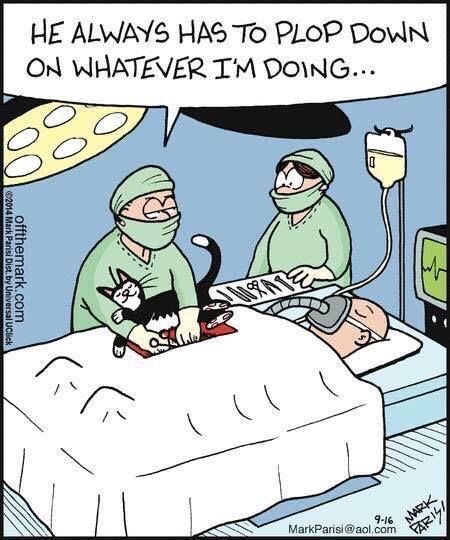Matthew Dicks's Blog, page 223
September 23, 2018
A DJ, a preacher, and a bank robber, all rolled into one
I think this Venn diagram is hilarious.

Also, rather oddly, I have occupied all sections of the diagram at one time in my life.
DJ: For the past 21 years, I have owned and operated a DJ company, performing more than 400 weddings and other events.
Preacher: Last year, I delivered a sermon at two different churches in Massachusetts, and next month, I will do so again at the Universalist Unitarian Church in Groton, CT. I’ve also married more than two dozen couples and conducted baby name ceremonies in my capacity as minister.
Bank Robber: In 1991, I was arrested and indicted on charges of grand larceny after a deposit of $7,000 went missing from the McDonald’s where I was working. Though my supervisors at McDonald’s did not believe that I had stolen the money and did not press charges, the police pressed charges on behalf of the insurance company.
In an effort to determine if the deposit bag might have been stolen from the bank’s night drop slot, my boss, Hope, and I attempted to steal deposits from the night drop using high test fishing line, wire coat hangers, hooks, and a magnet.
The results were less than spectacular. We were unable to extract a single deposit from the drop, and our repeated attempts resulted in about $5,000 in damages to the night drop mechanism.
Though I failed in my attempt, I was a bank robber for a moment in time.
Also, what the hell were we thinking?
September 22, 2018
My son loves his mother and sister. Period.
I have to wonder:
Is my son trying to hurt me, or is his cruelty casual and unintentional?

September 21, 2018
I don’t drink. For my health and other good reasons.
Bad news for all you non-teetotalers:
Alcohol was the leading risk factor for disease and premature death in men and women between the ages of 15 and 49 worldwide in 2016, accounting for nearly one in 10 deaths, according to the study, published in the journal The Lancet.
Those deaths include alcohol-related cancer and cardiovascular diseases, infectious diseases such as tuberculosis, intentional injury such as violence and self-harm, and traffic accidents and other unintentional injuries such as drowning and fires.
For someone who drinks on only the rarest of occasions, this was great news. Not that I wish ill will upon all my alcohol-drinking friends, but validation of your chosen lifestyle is always appreciated.
If only the same thing could be found to be true about vegetables.
Though it’s great to hear that avoiding alcohol might be good for my health, here’s another reason why I’m glad I almost never drink:
Last week I was the first responder to a serious vehicular accident. I was sitting in my car, waiting in line at a traffic light in front of a McDonald’s restaurant. In addition to several other cars waiting for the light, there was a large truck, and then a motorcycle, and then me, lined up in a row, waiting for the light to change.
The motorcycle was partially blocking the entrance to the McDonald’s parking lot.
A car traveling in the opposite direction turned left in order to enter the McDonald’s parking lot and apparently failed to see the motorcycle between the truck and me. As a result, the car plowed right into the motorcycle, throwing the rider - who wasn’t wearing a helmet - onto the pavement and under his bike.
It was not good.
The driver of the car veered right, nearly hitting my car before screeching to a halt, but she did not exit her vehicle. Being the one closest to the accident and the only real witness, I put my car into park and jumped out, running to the man. His head, face, and hands were bloody, and he was in an enormous amount of pain. His leg was probably broken, and there were likely other injuries as well.
It was a bad scene.
I managed to get him out from under his bike when an off-duty police officer who was inside the McDonald’s appeared and immediately took charge of the scene. I assisted for a bit, holding a tee shirt over the man’s head wound, but the paramedics and police were on the scene in just a couple minutes, moving me away and thanking me for my assistance.
I gave a brief statement to a police officer about the accident and then returned to me car, blood still on my hands and forearms.
It was a scary scene, capable of traumatizing anyone, but being a sufferer of PTSD, I knew that it was going to create problems for me for quite a while.
I could already feel it in my bones.
When I told my friend, Shep, about the accident the next day, the first thing he said was, “That’s not good for yourPTSD. Huh?”
It’s good to have friends who understand you so well.
Elysha and the kids were gone for the weekend, which meant that I would be home alone that night and the next, making things even more difficult.
After arriving home and showering off the man’s blood, I suddenly and surprisingly found myself wanting to drink. For the first time in well over a decade, I had the genuine urge to consume alcohol. Rather than dealing with what I had just witnessed and all that it had stirred up inside me, my sudden desire was to numb the pain with alcohol.
I think the prospect of being alone for the next 48 hours had a lot to do with it.
But as I said, I don’t drink. Except for the occasional champagne toast, I rarely consume alcohol anymore. So even though I suddenly found myself wanting to drink, the fact that I’m not really a drinker made this desire to drink surprising, odd, and inexplicable but not realistic.
It’s just not a thing I do.
My sudden desire to drink probably wasn’t very different than the person who has a tough day at work and goes home for a glass or two of wine. Or the person who receives some bad news and ends up at the bar, downing a few beers with friends. Or the person who attends happy hour on a Friday as a means of blowing off a little steam.
All perfectly normal.
My desire was to avoid confronting the issues that the accident has caused within me. I didn’t want to think about the man, his blood, his screams, and all the things from my past that the accident had unearthed. While my desire to drink made some sense, alcohol would’ve only delayed my processing of these issues.
So instead, I dealt with my issues in the way I have been taught. And yes, I suffered some nightmares. I also found myself locking doors in the middle of the day. I had difficulty moving from room to room in my house that night. The ringing of the phone startled the hell out of me.
I was more than on edge for a few days.
But I dealt with it. I processed it and moved on. I was able to push aside any desire to relax with a couple drinks (or more) because I don’t drink.
This isn’t an indictment on people who do drink. Most of my friends drink to some degree.
Most of my friends don’t also suffer from PTSD.
But I’ve also always been someone who has avoided potential problems like these whenever possible. I’ve never used an illegal drug in my entire life for the same reason. Though I had many, many opportunities to experiment with drugs throughout the years, I always said no, fully aware of the potential devastation that drugs can cause.
Many people began their drug addiction through the desire to simply experiment. I wasn’t ever going to run that risk.
While I’m not opposed to the legalization of marijuana and have no issue with anyone who wants to use it recreationally, I don’t see myself ever using it. Why run the risk of finding myself wanting or needing it at some point?
When my doctor proposed that I go on a cholesterol-lowering medication because my cholesterol was slightly elevated, I opted to change my diet instead. I ate oatmeal for lunch for an entire year and lowered my cholesterol by 50 points. I didn’t want to become dependent on a medication that was avoidable with a change in behavior and a hell of a lot of fiber.
So it’s good news that my avoidance of alcohol might turn out to be a very healthy choice, but for me, it’s always been more about the freedom from ever wanting or needing to drink.
I’ve never wanted to be the person who needs a glass of wine to relax. Or a few beers to have a good time.
Or something to numb the pain of trauma.

September 20, 2018
New Jersey is different and dumb.
I’m a nonconformist. I am not opposed to doing something different if the difference comes from a place of logic, efficiency, or common sense.
I don’t wear neckties because they serve no purpose other than acting as floral nooses.
I refuse to respond to anyone who has checked the restroom door, determined it to be locked, but then knocks on the door anyway.
Stupidity of this level should never be rewarded.
But there are times when doing something different is simply stupid, and New Jersey has cornered the market on this in two particular areas:
STUPID THING #1: You can’t pump your own gas in New Jersey.
This ban is a holdover from a 1949 law that was passed because lawmakers were worried that Americans didn’t know how to handle gasoline safely. Given that 48 states now allow their citizens to handle the pumping on their own and do it well, this myth has been effectively debunked.
The ban also offers no economically discernible benefit. While the ban admittedly creates low wage jobs, it also increases the cost of gasoline in the state by several cents, which is money that businesses could theoretically use to hire employees.
Also, on a recent stay in New Jersey, I noticed an unintended consequence of this ban:
Many of the gas stations in New Jersey are simply that:
Gas stations with an occasional garage attached. In states like Connecticut, where drivers exit their vehicles to pump gas, the gas station has grown into a small, well-appointed, well-lit grocery store, complete with clean restrooms, hot food options, and oftentimes restaurant franchises like Dunkin’ Donuts and Subway.
I went out for milk in NJ one night and ended up at a Stop & Shop because none of the gas stations that I passed had a convenience store attached.
Those people pumping gas in New Jersey could easily be the workers in these convenience stores, and the people of New Jersey could be getting their milk and Snickers bars a hell of a lot easier.
STUPID THING #2: You can’t make a left turn in New Jersey.
If you want to make a left turn in New Jersey and you’re on a major roadway, you’re out of luck. To take a left, you need to turn right onto something called a jughandle, which is an exit off the roadway that brings you above or below the opposite lane.
Think highway exit ramp but for a two lane road that would never have an exit ramp anywhere but New Jersey.
These jughandles theoretically reduce accidents. Studies have shown that they move cars efficiently in heavy traffic and reduce accidents that lead to death or serious injury by as much as 26 percent.
The problem is that these jughandles force motorists to spend more time on the roads overall, thus increasing their chances of an accident and wiping out any safety benefit they might offer.
This is because you often need to drive half a mile down the road, turn around at a jughandle, and drive half a mile back in order to stop at the store you just passed on the opposite side of the road five minutes ago. Do this often enough, and the additional time spent on the roadways adds up quickly.
For a state that has already artificially jacked up it’s gas price, forcing drivers to travel additional miles is ridiculous, and all the additional driving can’t be good for the environment or the roads or cars.
Also, many of New Jersey’s jughandles are now deteriorating, and repairing them is expensive and time consuming, because they are everywhere.
They are like dandelions.
Like I said, I’m not opposed to doing something differently if it’s logical or sensible.
Actually, I’m not opposed to doing something differently even if the result is neutral. No gain. No loss.
Being different is a good thing. A beautiful thing.
But New Jersey is being different to the detriment of everyone driving on its roadways.
That’s dumb.

September 19, 2018
Not every service dog is equal
I was standing in line at CVS. The person in front of me, placing items on the counter, was blind. She had a service dog at her side. As the woman’s items were being scanned, the dog stuck its muzzle into the Snickers bars, pulled one out, and in seconds had bitten the candy bar in half and had begun eating.
I was astounded.
The CVS employee who was ringing up her items saw all this and alerted the woman to the problem. She apologized profusely and pulled the candy bar from the dog’s mouth.
A manager appeared a moment later. Remaining on our side of the counter, she told the woman not to worry about the candy bar and began expediting the processing of her items. As she did, the dog’s muzzle disappeared into the Hersey bars and was eating one of those in seconds.
Again, I couldn’t believe it.
The manager noticed this and alerted the woman, and once again, she pulled the candy bar from the dog’s mouth, scolded the dog, and apologized profusely. As she did, the dog grabbed a bag of peanut M&M’s, ripping the bag open and scattering M&M’s across the carpeted floor.
More disbelief. More apologies. More cleanup.
By now the CVS employee had finished ringing up the woman’s items and the transaction was complete. She and the dog, accompanied by the manager, retreated to the area by the doors to the store with the partially eaten candy bars, where they seemed to be trying to determine how much chocolate the dog had actually consumed.
I’ve met very few service dogs in my time. I’m sure that not every service dog is equal. Some are certainly more effective and obedient than others.
There’s probably a bell curve of effectiveness for service dogs, as there are with most things.
But I think I may have seen the worst service dog on the planet that day. A dog that actually makes life more difficult for their visually impaired owner.
Witnessing greatness is always thrilling, but witnessing the absolute worst ever is pretty entertaining, too.

September 18, 2018
Why people think women aren't as funny as men (maybe)
A while ago, I sat through a four hour meeting.
18 women and me. Par for the course in elementary education.
An observation:
About halfway through the meeting, it occurred to me that I was the only person trying to be funny. I was the only one going for the laugh. The only one speaking off topic in order to make a joke. The only one making fun of himself.
It wasn’t that the women in the meeting were incapable of being funny. I know one woman is especially funny, and I’m sure others were as well. They were simply choosing not to be funny.
That got me thinking:
I'm often the only one in these female-dominated situations going for the laugh.
It’s important to note that I think women are just as funny as men. Michelle Wolf, Nikki Glasier, Amber Ruffin, and Elysha Dicks are four of my favorite funny people alive today, but the more I think about it, the more I realize that despite their ability to be funny, I don’t think women try to be as funny as men in many situations.




In situations like a meeting, they don’t go for the laugh nearly as often.
At least in my experience.
I have two theories to possibly explain this:
_______________________________
THEORY #1
So much research indicates that women find humor attractive in men, but the reverse is not always true. In an effort to get the attention of women and be perceived in a positive light, perhaps men have been conditioned to try to be funny over the course of their lifetime, regardless of the circumstance, and therefore the perception becomes that men are funnier than women because we simply go for the laugh more often.
Men aren’t necessarily funnier than women. They just try to be funny more often than women, because there is a greater incentive for them.
Honestly, if I had the choice between being good looking or funny, I would choose funny in a heartbeat, and I suspect that many men would feel the same.
Would women make the same choice? I don’t know.
_______________________________
THEORY #2
Women are often fighting for respect in the workplace, and perhaps humor does not serve this purpose well. If I’m a woman in a meeting hoping to be taken seriously and have her ideas thoughtfully considered, perhaps humor isn’t the best way to approach things, so they lean towards professionalism rather than the laugh.
A man, however, often has to fight less for the same level of respect and therefore feels more confident that he will be taken seriously, therefore he can afford to dare to be funny and will more often go for the laugh.
_______________________________
I don’t know if either of these theories are correct, and perhaps there are many professional settings where women go for the laugh just as often as men, but in my experience, it’s simply not the case, despite my belief that women are capable of being at least as funny as men.
But I do know that there are plenty of people - mostly men - who claim that women aren’t as funny as men, and I think it’s nonsense. And perhaps it has more to do with how often women try to be funny as opposed to how funny they really can be.
September 17, 2018
Feline interference
I have the same exact struggle with my cat with one exception:

I’m not just doing surgery when Plto sits across my forearms.
I’m writing.
A far more serious piece of business.


Speak Up Storytelling: Robin Gelfenbien
Episode #17 of the Speak Up Storytelling podcast is ready for your listening pleasure.
We start by talking about finding and crafting stories in your everyday life using my strategy "Homework for Life." We talk about the Homework for Life submitted by a listener, and I offer up three Homework for Life moments from the week and discuss why one is better than another.
Next, we listen to Robin Gelfenbien's story about finding love with the help of Marie Kondo, then Elysha and I discuss the strengths of this fantastic story as well as suggestions for improvement.
Finally, we answer a listener questions about storytelling in everyday life and offer some recommendations.
If you haven't subscribed to the podcast in Apple podcasts (or wherever you receive your podcasts), please do. And if you haven't rated and/or reviewed the podcast in Apple Podcasts (who are the best people ever), we would love it if you did.
Ratings and reviews help listeners find our podcast easier, and it makes us feel better about ourselves and our work.

September 16, 2018
Serena is beautiful. You are a terrible human being.
Comedian Amber Ruffin alerted me via Late Night with Seth Meyers that horrible human beings have recently been insulting Serena Williams for her physical appearance, specifically related to a black body suit that she wore at the French Open but also for her physicality in general.
In the words of Amber Ruffin, “When you’re skinny, people let you live, but when you’re a curvaceous black woman, people feel like it’s okay to tell you to cover up.”
If you think Ruffin is wrong, look at this. On the left is Serena Williams wearing her now banned outfit.
On the right, Anne White’s perfectly legal outfit at Wimbledon in 1985.
What’s the difference between these two outfits?


I know what’s different. Anne White is white, and her outfit is white. Serena is black, and her outfit is black.
That’s the only objective difference.
Or what about these outfits? Are these outfits, also worn my professionals on the tour, less revealing than Serena William’s outfit?



I’m so annoyed by this news that I’ve decided to violate my strict policy on never commenting on physical appearance to say that I think Serena Williams is an incredibly beautiful woman.
I’m also quite certain that anyone who insulted Serena Williams’s appearance is ugly (at least on the inside and possibly the outside) and stupid. Also probably jealous, possibly racist, and definitely awful.
We have a President who constantly insults women (and women of color, in particular), brags about sexually assaulting women, and silences porn stars through hush money. The last thing we need in this country is a bunch of morons insulting a world class athlete and genuine humanitarian because her physical appearance does not conform to their predefined definition of beauty.
To these monsters, I say this:
Shut up. Go do something productive. End this junior high nonsense. Stop contributing to a culture where women are objectified and there is only one definition of beauty. Look in the mirror and ask yourself, “What is so broken inside of me that causes me to insult the appearance a woman like Serena Williams? Am I filled with racial bias or just a horrible human being? Or both?”
Then go do something good and decent for the world. Something that doesn't involve insulting women for the way they look.
September 15, 2018
Names are interesting. And confusing.
I met a woman in Iowa who has five brothers and one sister.
Her five brothers are named after Biblical characters whose names begin with J.
James, John, Jesse, Jude, and Joshua.
Her sister's name is Anne. It was their grandmother's name.
The woman who I met is named Amanda. When she was born, her parents hadn't chosen a name, so they asked a random woman in an adjacent hospital room what they had just named their new baby. The new mother said, "Amy," so Amanda's parents named her Amy, too.
But because they also thought that Amy sounded like a nickname and was not professional enough for a possible future CEO, they named her Amanda but called her Amy.
Because this all makes sense.
When Amanda/Amy went to kindergarten, there was already an Amy in the class, so the teacher told her that she needed to be called Amanda at school.
I once had three Matthews in my class (not including me) and three Julias in my class, but apparently this teacher couldn’t keep two Amys straight.
So Amanda/Amy was Amy at home and Amanda at school, which led to people occasionally thinking Amy and Amanda were two different people.
Remember: Amanda/Amy's parents named their sons in a very specific Biblical/alphabetical way. And they named her sister after a deceased grandparent. But Amanda/Amy, who was third born, received a name based upon the name of another random baby who happened to be born around the same time.
Then she got another name, too, because that first name wasn't good quite enough but also somehow good enough, too.
Parents name babies in the strangest ways sometimes.
My wife almost didn’t have a name. Her parents originally named her Jordan, but the doctor told them that Jordan was a boy’s name, so they abandoned their choice. Then they hemmed and hawed about a new name for so long that the hospital threatened to put “Girl” on the birth certificate.
They finally settled on Elysha, which was the name of my father-in-law’s secretary. Apparently they didn’t love the secretary but liked the name a lot. They wrote all the various spellings of Elysha on the back of an envelope and then chose one.
My wife’s name would be Jordan today if the doctor hadn’t opened his big mouth.
Elysha and I took were slightly more purposeful in the naming of our children.
Our daughter is named Clara Susan. Clara is the character in one of my wife’s favorite children’s books, The Van Gogh Cafe, and Susan was my mother’s name.
Our son is named Charles Wallace, which is also the name of the character from A Wrinkle in Time, a book that my wife and I love. We also love the poet Wallace Stevens, who lived and worked in Hartford, CT, so Wallace was an added bonus.
As for me? I was originally going to be named Bartholomew, but my mother claimed to have “saved me” from my father’s terrible choice by telling the nurses that I was Matthew before he even had a chance to meet me.
Choosing a name without your husband’s consent. Also a strange way to name a baby.




